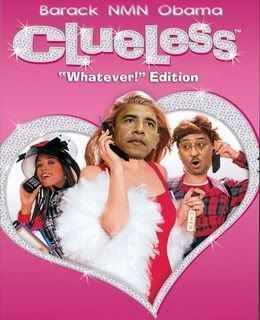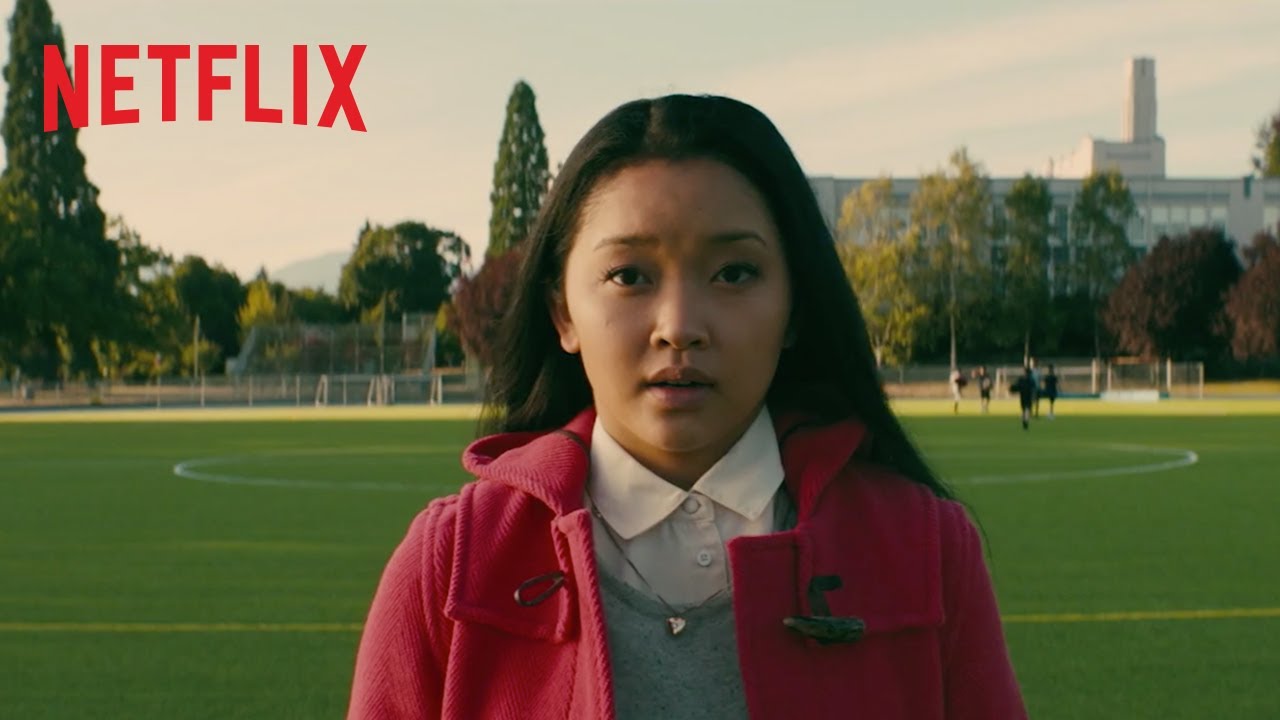We all love a good hero, don’t we? The brave, the righteous, the one who stands up for what’s right and always, *always* saves the day. We cheer for them, we relate to them, and we see a bit of ourselves in their struggles and triumphs. It’s a fundamental part of why we lose ourselves in movies – that comforting assurance that good will prevail, usually thanks to a protagonist we can wholeheartedly root for. But what happens when that comfort is shattered?
Imagine sitting through a gripping film, following a character’s journey, only to have the rug pulled out from under you in the most spectacular fashion. Suddenly, the person you thought was the hero isn’t just flawed; they’re the villain, the deluded, or the architect of their own — or others’ — undoing. These aren’t just plot twists; they’re existential gut-punches that make us question everything we thought we knew about the story and, sometimes, even about human nature itself. How good or evil are people, deep down? What is humanity like, at its core?
While we might not answer those profound questions here, we’re certainly going to highlight some of the best films that force them upon us. These are the movies that masterfully subvert our expectations, offering thrilling and astonishing events that reveal the protagonist is either deeply mistaken or, perhaps, a villain all along. Get ready for a mind-bending journey through cinematic moments where the hero realizes they’re anything but the good guy.
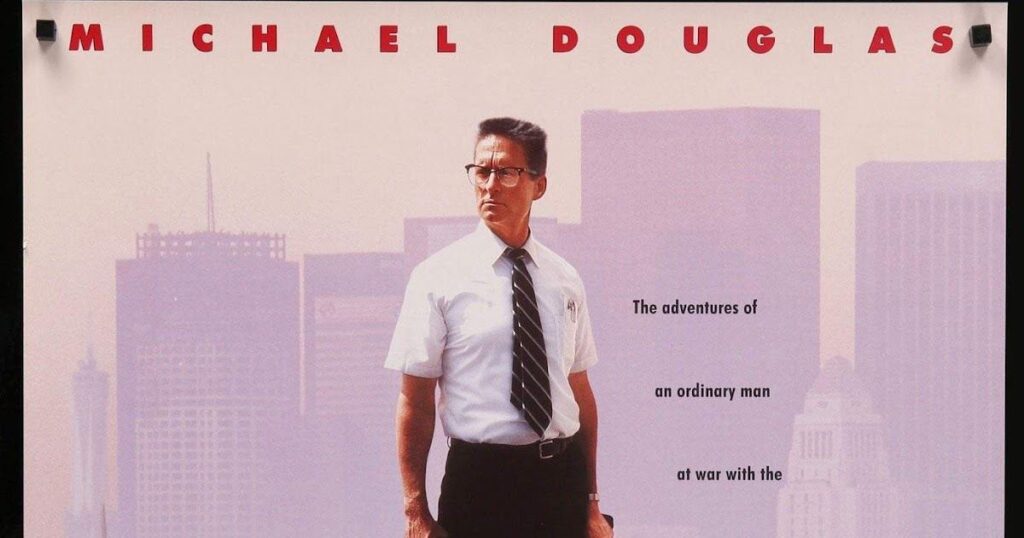
1. Falling Down (1993)
Numerous cinema enthusiasts cite *Falling Down* as a prime example of an individual thinking they’re virtuous, only to realize that they are not. Michael Douglas takes on the lead role, portraying William, a man who experiences a sudden and intense breakdown. What follows is a violent rampage that quickly spirals out of control, leaving both him and the audience to grapple with a stark re-evaluation of his character.
His increasing bitterness and resentment are initially fueled by the relatable tribulations of job loss and marital separation. These events, while undoubtedly tough, push William to a breaking point that he perceives as a quest for justice or self-preservation. However, as his actions escalate, the lines between victim and aggressor blur almost completely.
By the film’s conclusion, William’s perception of himself as a ‘good guy’ is utterly dismantled. The journey he embarks on reveals a profoundly flawed individual, far from the virtuous person he initially perceives himself to be. It’s a powerful, unsettling realization that makes viewers ponder the nature of sanity and societal pressure.
Read more about: James Earl Jones, a Titan of Stage and Screen, Whose Voice Defined Generations, Dies at 93
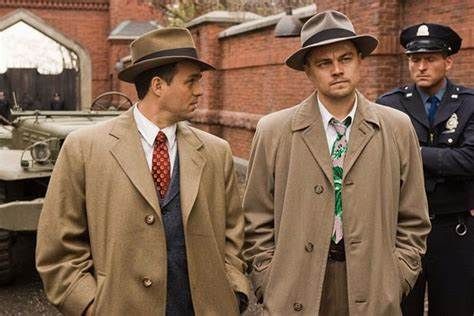
2. Shutter Island (2010)
*Shutter Island* delivers one of those wild, brain-twisting endings that stays with you long after the credits roll. The film opens with U.S. Marshal Teddy, portrayed by the brilliant Leonardo DiCaprio, and his newly partnered colleague, Chuck, played by Mark Ruffalo, disembarking from a ferry at a remote mental institution. Their initial objective is seemingly straightforward: to locate a fugitive murderer who has mysteriously managed to escape the heavily guarded facility.
However, as their investigation progresses, reality itself begins to blur. Teddy’s psyche slowly but surely unravels, pulled by fragmented memories and disturbing visions that hint at a much deeper, more personal connection to the island. The atmosphere of the institution, with its enigmatic staff and troubled patients, serves to heighten the sense of unease and disorientation, making it increasingly difficult to discern truth from illusion.
The shocking climax reveals a truth far more devastating than a simple escape attempt. It becomes clear how far Teddy has stretched his delusion, constructing an elaborate alternate reality to avoid confronting the traumatic truth of his past. He is not the hero investigating a crime, but a patient grappling with his own profound guilt, making the audience question everything they’ve witnessed up to that point.
Read more about: Beyond Expectations: A Deep Dive into Cinema’s Most Unforgettable Twist Endings
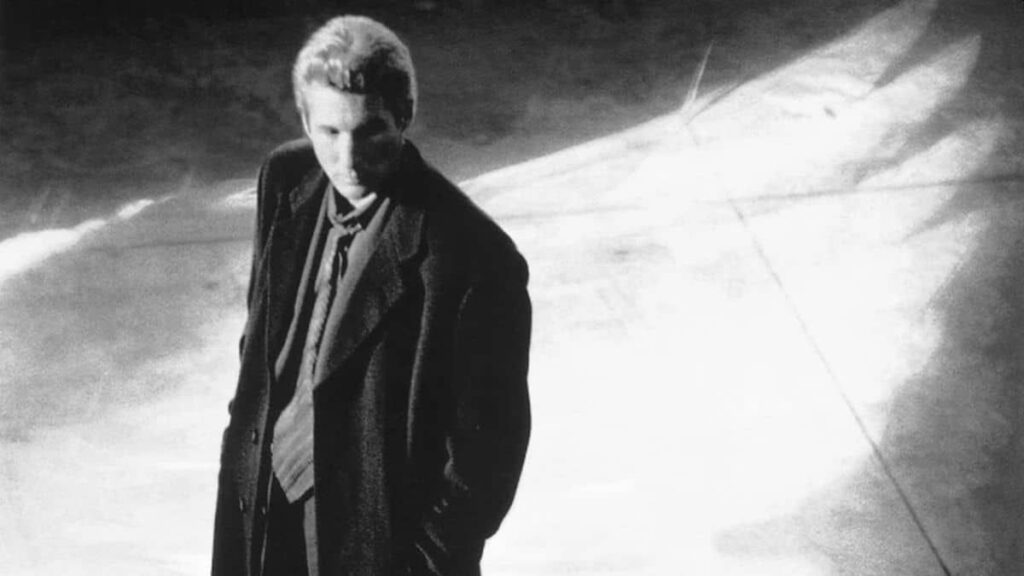
3. Primal Fear (1996)
This 90s flick is a consistent entry on lists of films with truly unforgettable twists, and for good reason. *Primal Fear* centers on Martin, a charismatic defense lawyer played by Richard Gere, who takes on what seems like an impossible case: representing Aaron, a shy altar boy portrayed by Edward Norton, who stands accused of the brutal murder of his archbishop. Martin, confident in his legal prowess, believes he’s the white knight in this story, ready to expose a flawed justice system.
As the narrative twists and turns through courtroom drama and psychological revelations, Martin throws himself into defending Aaron, genuinely believing his client is an innocent victim. He sees himself as Aaron’s savior, a hero fighting against the odds to uncover the truth and ensure justice for a vulnerable individual. The lawyer pours all his skill and conviction into the case, seemingly making headway against the seemingly insurmountable evidence.
However, the film culminates in a thoroughly shocking twist that completely redefines Martin’s perception of his role. He learns, in the most devastating way possible, that he’s been meticulously played. Aaron, far from being a timid altar boy, has been faking multiple personality disorder all along, manipulating Martin and the entire justice system. This revelation shatters Martin’s image of himself as the hero, exposing him as a pawn in a much darker game.
Read more about: Know the Legends? These 14 Scream Queens Were the Terrifying Rulers of Horror Across the Decades!
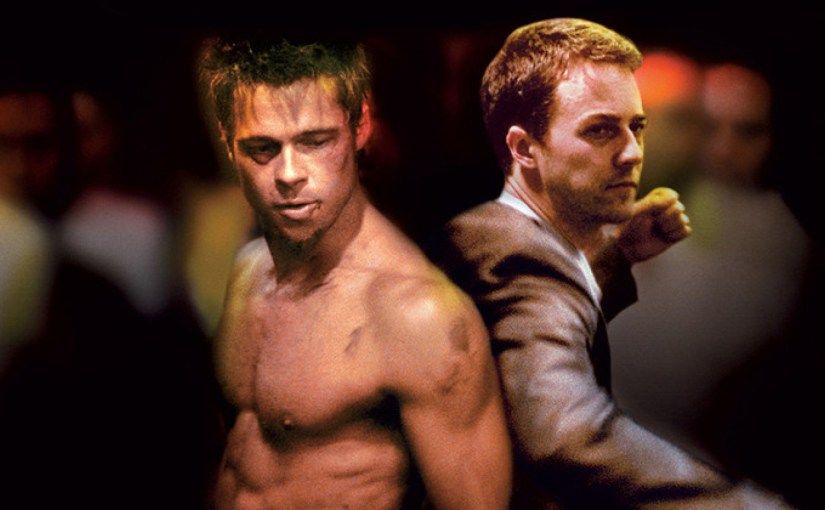
4. Fight Club (1999)
Even if you’ve never seen the movie, you’ve almost certainly heard the iconic phrase, “first rule of fight club.” *Fight Club* features Edward Norton narrating a story about himself and his wildly ofilter friend, Tyler Durden, brought to life by Brad Pitt. Their unlikely partnership leads to the formation of an underground fight club, an illicit outlet for men seeking release from their mundane lives, which quickly grows beyond their wildest imaginations.
What starts as a clandestine gathering for bare-knuckle brawls soon morphs into something far more expansive and chaotic. More and more people join their ranks, and the club evolves into a full-blown anti-consumerist, anarchist organization known as Project Mayhem. The narrator, initially a passive observer, finds himself increasingly entangled in Tyler’s escalating plans, drawn deeper into a world of rebellion and destruction.
The film’s surprise twist is one for the ages, revealing that the narrator and Tyler Durden are, in fact, the same person. Tyler is merely an alter ego, a manifestation of the narrator’s own repressed desires and frustrations. This shocking realization forces the protagonist down a path of self-destruction and confronts him with the true villainy of his own actions and beliefs, making him, quite literally, the antagonist of his own story.
Read more about: Brad Pitt’s Shocking Passion: Unveiling His Hands-On Architectural Journey and Other Unseen Ventures
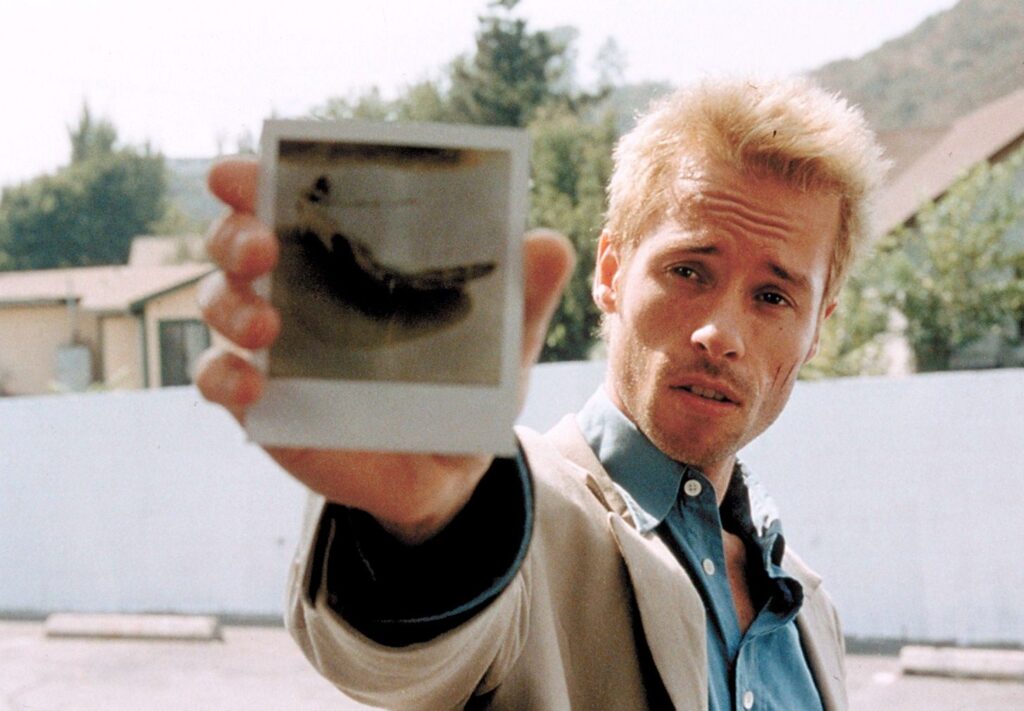
5. Memento (2000)
*Memento* is a film that sparks endless debate among viewers: is its lead character good or bad? The answer often depends entirely on how one classifies ‘goodness.’ If a person’s actions, even if accidental, define their moral standing, then Leonard (played by Guy Pearce) presents a complex case. The film’s unique, reverse-chronological structure means that the end is effectively the beginning, adding layers to this moral ambiguity.
Leonard suffers from severe short-term memory loss, a condition that makes his quest to discover who killed his wife incredibly challenging. He relies on notes, tattoos, and polaroids to keep track of clues, but his inability to form new memories lays the groundwork for monumental mistakes. His fragmented perception of reality, combined with his unwavering drive for vengeance, constantly blurs the line between detective and perpetrator.
The narrative meticulously peels back the layers of his self-deception. The shocking twist reveals that Leonard has been perpetually hunting an already-dead killer, essentially creating his own ongoing mission to give his life meaning. He’s not just forgetting information; he’s actively choosing to mislead himself, making him the architect of his own torment and the unwitting villain in a tragedy he refuses to let end.
Read more about: Beyond Expectations: A Deep Dive into Cinema’s Most Unforgettable Twist Endings
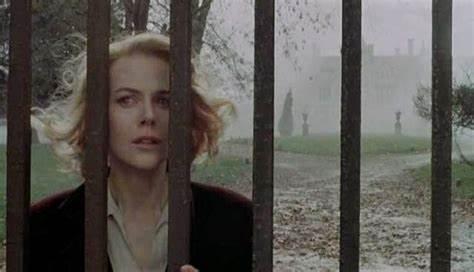
6. The Others (2001)
It’s absolutely no surprise that *The Others* consistently appears on ‘best twist ending’ lists; the revelation was so profoundly shocking that it left many viewers, myself included, utterly floored. The film introduces us to Grace, a mother who has it rough, living in shadows within her sprawling, dark home. Her two children suffer from a severe skin reaction to sunlight, necessitating a life lived in constant gloom and seclusion, adding an intense layer of tension and foreboding.
As the story unfolds, Grace becomes increasingly convinced that ghosts haunt her home. She bravely fights to protect her children from these unseen entities, all while desperately trying to maintain her own sanity. The sense of dread is palpable, and the audience is drawn into her struggle, believing in the spectral threat that seems to invade her sanctuary.
However, the truth is far more tragic and chilling. The twist reveals that Grace and her children are, in fact, the ghosts. They are not battling the living, but are themselves spectral residents, condemned to relive their past. It’s unveiled that Grace had murdered her children before taking her own life, transforming her from a protective mother into the unwitting antagonist of her own terrifying afterlife, a revelation that recontextualizes every scene that came before.
Read more about: A Rollercoaster of Regret: 15 Movies That Only Get More Disappointing
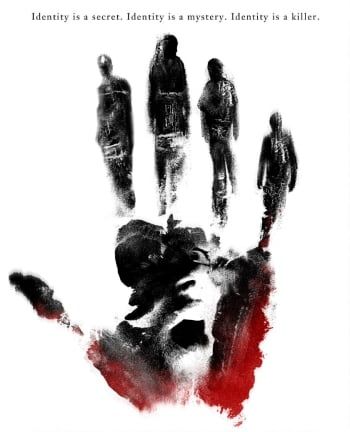
7. Identity (2003)
*Identity* is a film packed with surprises, constantly keeping you on the edge of your seat. However, it’s only near the very end, in its final, chilling moments, that the full, mind-bending truth of what’s truly happening is revealed. The premise sets up a classic thriller scenario: Ian (played by John Cusack) and nine other strangers find themselves stranded at a remote motel during a violent storm, cut off from the outside world and vulnerable.
Their predicament quickly turns deadly as, one by one, the stranded guests begin to die in increasingly mysterious and gruesome ways. Panic sets in, and suspicion runs rampant among the survivors. Who or what is causing their deaths? Can anyone truly be trusted in this claustrophobic, high-tension environment? Every character becomes a suspect, and the audience is left guessing, trying to piece together the identity of the killer.
The final twist of *Identity* shatters all preconceived notions, revealing that these characters are not separate individuals at all. They are, instead, all distinct personalities within the mind of a single, convicted murderer. This shocking realization repositions the entire narrative, making the protagonist’s (or protagonists’) internal struggle the true battle, and the ‘killer’ is not an external threat but a fragment of a deeply fractured psyche, completely redefining who the ‘good guy’ and ‘bad guy’ truly are. This makes the protagonist not just unreliable, but the source of the film’s entire terror and deception.
Okay, so we’ve already taken a deep dive into some truly mind-blowing films where the hero takes a dark turn. But trust us, the ride isn’t over yet! If you thought those first few entries were wild, get ready for even more cinematic curveballs that will leave you questioning everything you thought you knew about good, evil, and the people we root for on screen.
These next films masterfully pull back the curtain, forcing their main characters – and us, the audience – to confront uncomfortable truths about their actions, intentions, and even their very identities. Sometimes it’s a slow burn, a gradual descent into moral ambiguity. Other times, it’s a sudden, gut-wrenching twist that redefines the entire narrative. Either way, prepare for your perceptions to be deliciously shattered!
Read more about: A Rollercoaster of Regret: 15 Movies That Only Get More Disappointing
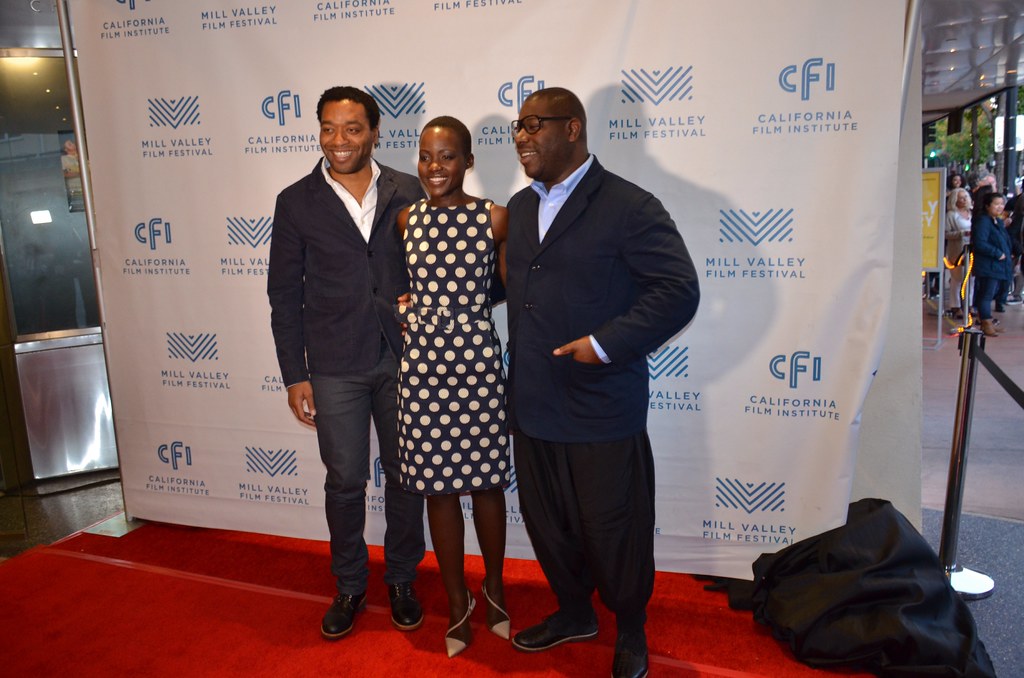
8. Us (2019)
Jordan Peele is a master of modern horror and social commentary, and his film *Us* is absolutely another one of those where the ‘good person’ turns out to be anything but, in a chillingly profound way. The story kicks off with Adelaide, played by the incredible Lupita Nyong’o, as she returns to her childhood home with her husband and two kids, ready for a relaxing beach vacation. But this is a Jordan Peele film, so you know ‘relaxing’ isn’t on the menu for long!
Things take a terrifying turn when a group of masked strangers shows up, resembling Adelaide and her family in the most unsettling way possible. These doppelgängers, known as ‘The Tethered,’ aren’t just creepy; they’re a mirror reflecting a deeply disturbing truth. The film expertly builds tension, making us wonder about the nature of these intruders and their connection to Adelaide’s past.
The twist, when it hits, is a total game-changer. It reveals a hidden layer to Adelaide’s identity and backstory, making it clear that the lines between victim and aggressor, hero and villain, are incredibly blurry here. As the context states, whether you agree with the twist or not, ‘good’ simply does not factor in. You can understand the motivations, yes, but it completely upends the initial perception of the protagonist, making her complicit in a much larger, darker narrative.
Read more about: The Perpetual Motion Machine: Why Hollywood Can’t Quit Its ‘It Boy’ Obsession and the Seven Faces Dominating Your Screens
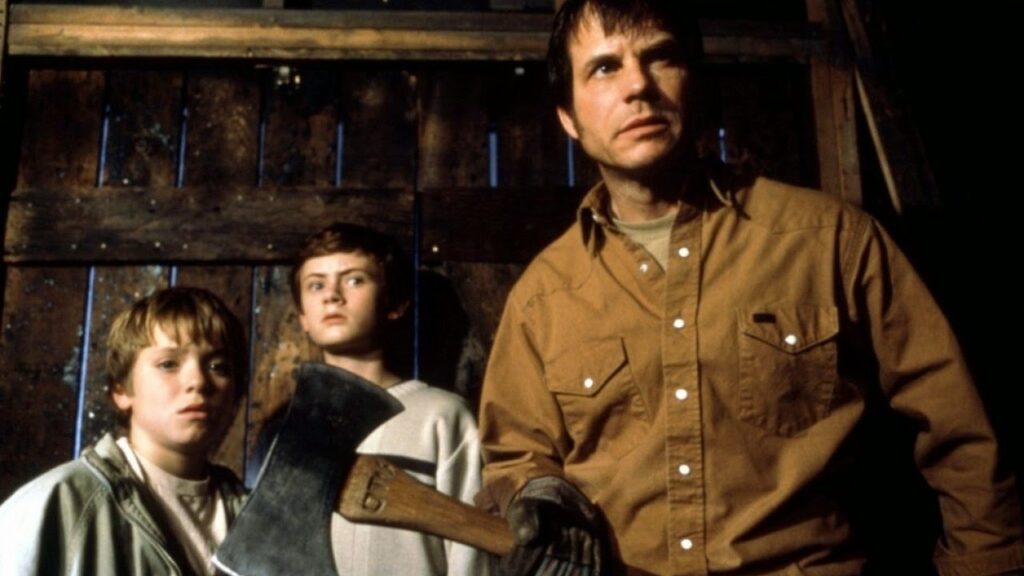
9. Frailty (2001)
Now, here’s a film that genuinely delves into the unsettling space where people *think* they’re doing good, but are actually anything but. *Frailty*, a hidden gem that a few discerning individuals name as a favorite, pulls off a brilliant and dark psychological thriller. It all starts when an unknown man, portrayed by Matthew McConaughey, visits an FBI agent to recount a chilling tale from his childhood.
His story centers on his father, who believed he received a direct vision from God, compelling him to kill people he identified as ‘demons.’ This isn’t just a grim fantasy; the father enlists his young sons in these horrifying acts, genuinely believing he’s carrying out divine justice. The film expertly plays with the concept of faith and fanaticism, creating an atmosphere of intense psychological dread as we watch these children grapple with their father’s terrifying conviction.
The true genius of *Frailty* lies in its reveal at the end, which the context deliberately keeps unspoiled, and we will too because it’s *that* good. This twist completely redefines everything that came before it, challenging our perception of who the ‘good guy’ really is in this horrifying family drama. It forces you to rethink the entire narrative, cementing it as a powerful exploration of delusion and inherited evil.
Read more about: Beyond the Hype: 14 Critically Panned Sci-Fi Gems You Absolutely Need to See Right Now
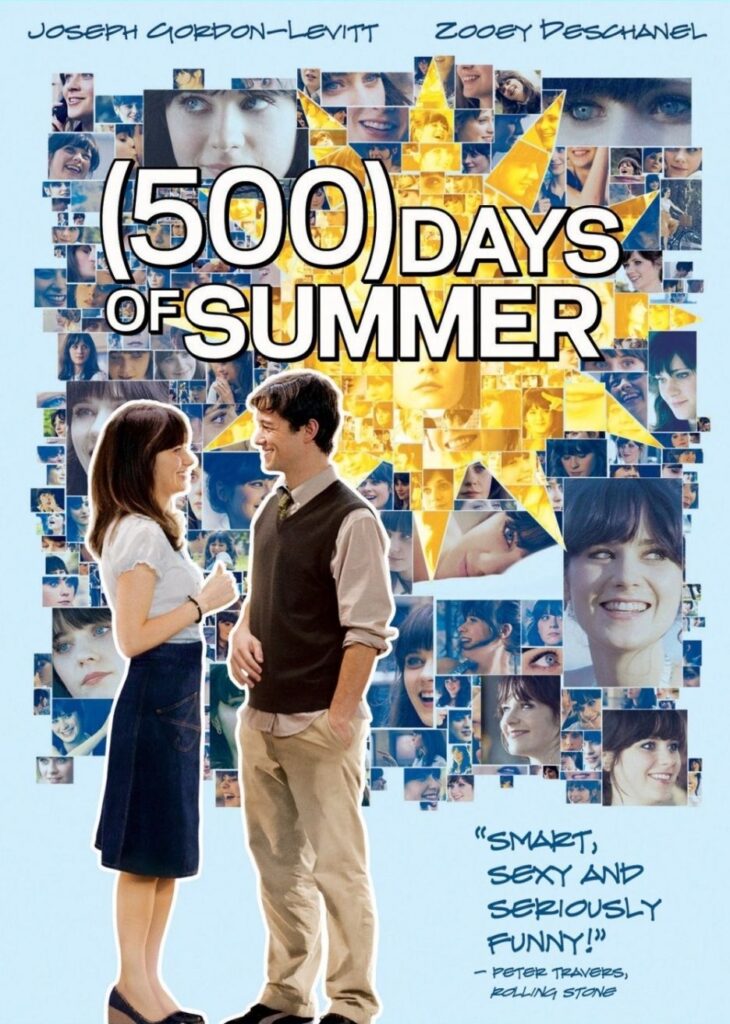
10. 500 Days of Summer (2009)
Alright, buckle up for a different kind of protagonist realization – one that hits closer to home for anyone who’s ever been utterly, hopelessly, sometimes delusionally, in love. *500 Days of Summer* is absolutely one of those movies you either adore or, well, have a complicated relationship with. It’s undeniably beautiful, fun, and funny, with Joseph Gordon-Levitt and Zooey Deschanel delivering fantastic performances that draw you into their unconventional romance.
The heart of the film beats to the tune of Tom Hansen, Gordon-Levitt’s character, who is on the hunt for a specific kind of love that, ironically, Summer (Zooey Deschanel) just isn’t offering. They embark on a relationship, and while Summer is perfectly content keeping things casual, Tom’s heart perpetually yearns for something deeper, something more committed. It’s a classic push-and-pull, but with a twist.
The real trouble, as our context points out, isn’t just their differing desires, but Tom’s profound inability to accept Summer’s boundaries. He paints himself as the heartbroken romantic hero, but his unwavering expectation that Summer will eventually conform to his ideal, despite her clear communication, positions him as the architect of his own heartbreak. He’s not a villain in the traditional sense, but he realizes he’s far from the ‘good guy’ who simply got unlucky in love; he’s a protagonist whose romanticized worldview ultimately blinds him to reality, making him the antagonist of his own romantic tragedy. Talk about a brutal self-realization!
Read more about: Miley Cyrus: Decoding the Journey – From Disney Star to Global Icon and Her Evolving Relationship with Show Business
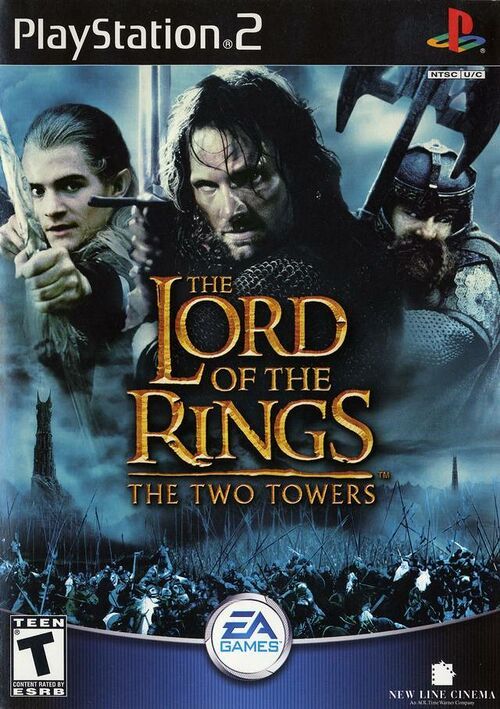
11. Lord of the Rings: Return of the King (2003)
When we talk about heroes, few loom larger in the cultural consciousness than the fellowship of *The Lord of the Rings*. Every single member is essential to the success of their monumental quest. And Frodo Baggins, the ring-bearer, is undoubtedly one of the most important characters in the whole saga, tasked with a burden that would crush any other. We follow his grueling journey, believing in his inherent goodness and strength.
However, even the purest of hearts can be corrupted by ultimate power. At the very precipice of Mount Doom, the moment of truth arrives, and Frodo, our beloved protagonist, succumbs to the Ring’s insidious influence. He claims it for himself, unable to complete the task he was destined for. It’s a shocking, heartbreaking moment that reminds us how easily even the most virtuous can fall.
But here’s where the true hero emerges – the quiet, steadfast Samwise Gamgee. It’s Sam, the unsung hero, who steps up, rescuing Frodo from the clutches of the Ring’s power, literally carrying him the rest of the way up the mountain, and, crucially, urging him to cast the Ring into the fire. Frodo’s failure at the very end means that in that critical moment, he was not the ‘good guy’ we expected him to be, highlighting that even the greatest heroes can falter, and sometimes, true goodness comes from the most humble of companions.
Read more about: Hold Up! 15 Beloved Movies With Plot Holes So Big You’ll Scream ‘How Did I Not Notice?!’
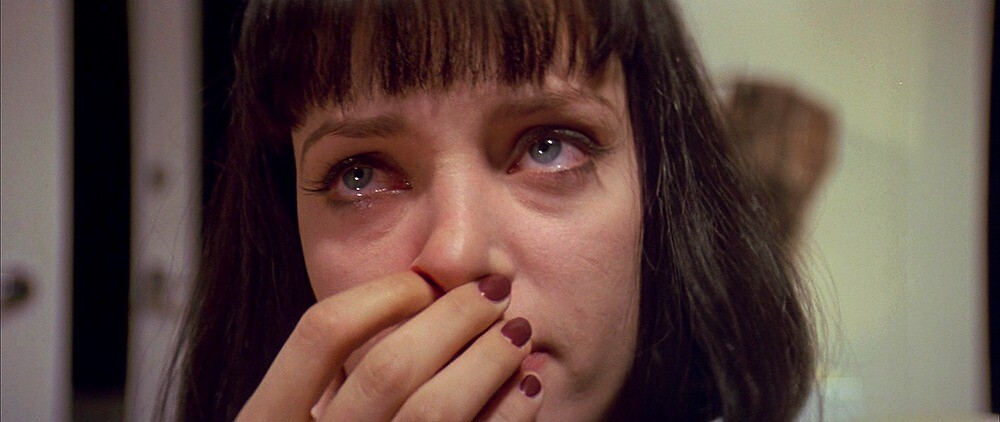
12. Pulp Fiction (1994)
If you’re looking for a film packed with characters who aren’t exactly paragons of virtue, *Pulp Fiction* has you covered! There are plenty of main characters in this iconic movie, and as the context bluntly puts it, “none of them are really ‘good guys’.” But instead of boring you with why they’re all pretty terrible, let’s focus on one character who genuinely grapples with his darker side: Jules Winnfield.
Jules, portrayed by the legendary Samuel L. Jackson, is a hitman – which, let’s be real, is “plenty bad enough” on its own. He’s a professional killer, cool under pressure, and totally ruthless. For much of the film, he operates firmly within the morally ambiguous, violent world he inhabits, never really questioning his role in it. He’s good at his job, and he knows it.
However, a supernatural encounter sparks a profound change in Jules. He’s the one character who decides to turn his life and choices around by the film’s end. As a Redditor perfectly summed it up in the context: “Jules always knew he was the bad guy. He just stopped being OK with being the bad guy.” This isn’t about becoming a saint overnight, but about a powerful realization and a choice to stop actively being the antagonist in his own life, and perhaps, the lives of others. It’s a moment of clarity that few of *Pulp Fiction’s* characters ever achieve.
Read more about: Beyond the Screen: The Most Infamous Cinematic Moments That Ignited Chaos in Theaters and Triggered Real-World Turmoil
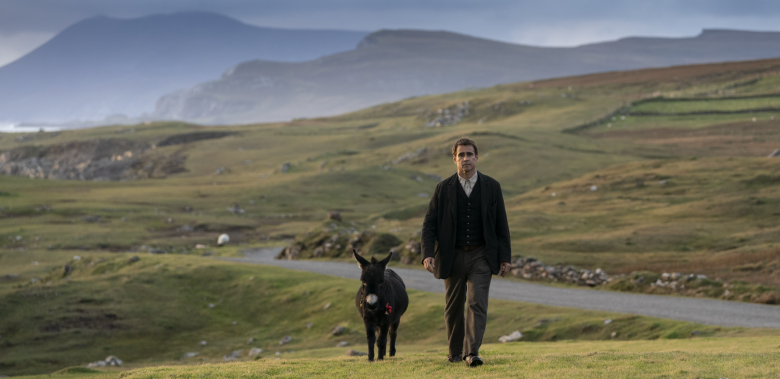
13. The Banshees of Inisherin (2023)
Closing out our list is a more recent film, *The Banshees of Inisherin*, which delivers a uniquely bleak and profoundly human take on protagonists who are anything but heroic. Set on a remote, fictional Irish island, the movie centers on two lifelong friends, Colm Doherty and Padraic Suilleabhain. Their lives seem simple, until Colm makes an abrupt and baffling decision: he cuts off their friendship, completely.
Padraic, understandably bewildered and hurt, initially tries desperately to restore their relationship, unable to comprehend Colm’s sudden cruelty. But as Colm’s resolve hardens and his demands grow increasingly extreme, Padraic’s attempts at reconciliation curdle into resentment. The film explores the devastating impact of a fractured bond, showing how personal grudges can spiral into something truly destructive.
What makes this film so compelling, and so darkly fitting for our list, is that “neither of the protagonists is really good.” As the tension escalates, Colm and Padraic descend into a horrifying cycle of “arguing, threatening, and attempting to hurt each other (or themselves, in retaliation).” They are both caught in a tragic, self-destructive dance, proving that even seemingly ordinary men can become “disturbing and disturbed people,” far removed from any conventional idea of a ‘good guy.’ It’s a fascinating, if bleak, exploration of human pride and the bitter fruits of unforgiveness.
Read more about: Hollywood Heart, Parental Love: Martin Short’s Epic Plane Seat Swap with Chance the Rapper’s Daughter Goes Viral
There you have it! Another round of cinematic masterpieces that absolutely refuse to let their protagonists stay on the straight and narrow. From the chilling revelations of doppelgängers and divine delusions to the heartbreaking ego trips of rom-com leads and the dark descent of old friends, these films are a powerful reminder that the ‘hero’ isn’t always who we think they are. They twist our expectations, challenge our assumptions, and ultimately, leave us with some truly unforgettable storytelling. So, next time you settle in for a movie night, get ready to question everything – because the dark side of the hero is always lurking, waiting for its moment to shine (or, you know, totally darken the screen!).” , “_words_section2”: “1802

